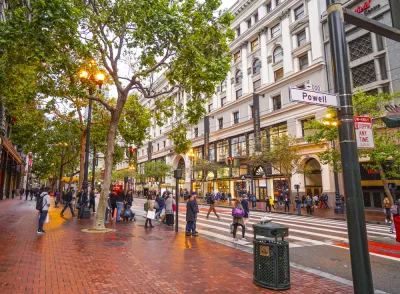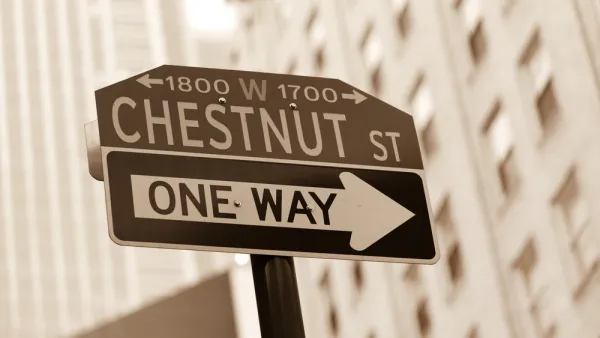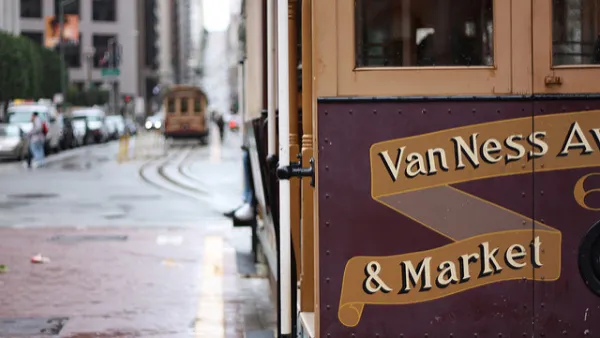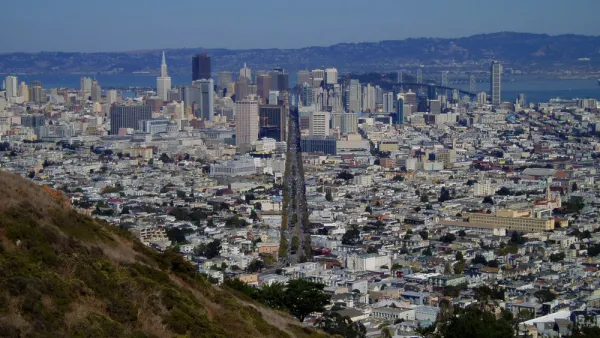Multiple studies have quantified the early results from a project in San Francisco that blocked most private automobile traffic from Market Street in the city's downtown.

Regina Clelow shares news of a new study into the effects of Better Market Street in San Francisco, reporting large increases of the number of people riding scooters on the newly car-free Market Street:
The average daily scooter ridership the weeks of February 2–29, 2020 increased by 30 percent from the prior three weeks of January 5–25, 2020 before car-free Market.
Clelow puts the scooter ridership data in context of the vast, proven potential of micromobility and street changes to improve the safety and sustainability of city streets.
Another study, reported by Rachel Swan in February, found evidence of small increases in congestion on roads proximate to Market Street, proving incorrect predictions of gridlock (and not for the first time) as a result of removing cars from a major thoroughfare:
Congestion increased only marginally on nearby roads, according to new data from the traffic analytics firm Inrix. It shows that the biggest slowdown occurred on Mission Street, where southbound vehicle speeds decreased by 4% — from 10.3 miles per hour to 9.9 miles per hour — during the 8 a.m. commute. On other adjacent streets, car speeds declined by an average of 1%.
And for one final angle on the modes benefiting from Better Market Street, the Inrix report also found evidence of improved transit travel times along the corridor:
On the flip side, transit riders on Market Street benefited significantly from the removal of cars. Muni lines are running 6% faster on average, said Erica Kato, an agency spokeswoman. Some bus lines shaved 12% travel time, which means rides are two minutes shorter.
FULL STORY: San Francisco’s “Car-Free” Market Street Boosts Bike (and Scooter) Ridership

Analysis: Cybertruck Fatality Rate Far Exceeds That of Ford Pinto
The Tesla Cybertruck was recalled seven times last year.

National Parks Layoffs Will Cause Communities to Lose Billions
Thousands of essential park workers were laid off this week, just before the busy spring break season.

Retro-silient?: America’s First “Eco-burb,” The Woodlands Turns 50
A master-planned community north of Houston offers lessons on green infrastructure and resilient design, but falls short of its founder’s lofty affordability and walkability goals.

Test News Post 1
This is a summary

Analysis: Cybertruck Fatality Rate Far Exceeds That of Ford Pinto
The Tesla Cybertruck was recalled seven times last year.

Test News Headline 46
Test for the image on the front page.
Urban Design for Planners 1: Software Tools
This six-course series explores essential urban design concepts using open source software and equips planners with the tools they need to participate fully in the urban design process.
Planning for Universal Design
Learn the tools for implementing Universal Design in planning regulations.
EMC Planning Group, Inc.
Planetizen
Planetizen
Mpact (formerly Rail~Volution)
Great Falls Development Authority, Inc.
HUDs Office of Policy Development and Research
NYU Wagner Graduate School of Public Service




























